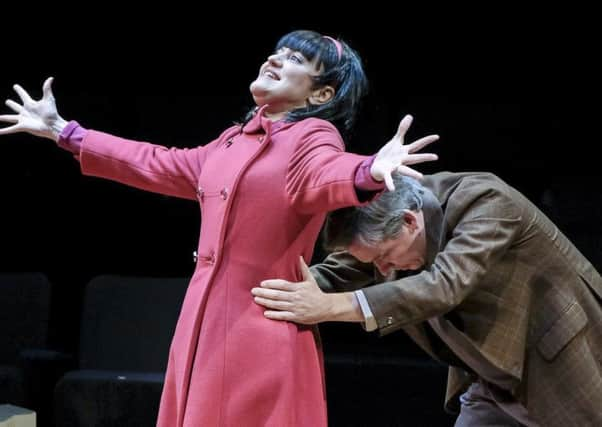Theatrical giant


Even now, at the age of 78 when many of his peers are slowing down, Alan Ayckbourn remains one of our most prolific, not to mention revered, playwrights.
Earlier this month saw the world premiere of his 81st play – A Brief History of Women – at the Stephen Joseph Theatre in Scarborough, his spiritual home, and on Sunday he hosts the second of his retrospective evenings looking back at his 60 year association with the theatre.
Advertisement
Hide AdAdvertisement
Hide AdAyckbourn’s latest play is a comedy in four parts about an ordinary man and the remarkable women who loved him, left him or lost him over six decades.
If this wasn’t enough he’s also found time to write another play, The Divide, which debuted at the Edinburgh Festival last month. It’s a departure for Ayckbourn in that it’s a sci-fi play aimed at a younger audience. Yes, that’s right – ‘science fiction’.
It’s set in a future world where men and women are forced to live separately and is, as the playwright himself admits, quite a bleak tale. “It’s sort of a cross between dystopia and Romeo and Juliet,” he says.
The play, which he didn’t direct, has received some decidedly mixed reviews but shows he’s not afraid to challenge his audience and confound his critics.
Advertisement
Hide AdAdvertisement
Hide Ad“I met someone in Edinburgh recently who said they’d just seen Taking Steps in Scarborough and had come up to see my new play and couldn’t believe they were by the same writer.”
He’ll take that as a compliment. “I wanted to write it [The Divide] because I’ve developed a routine and I’m very suspicious of routines,” he says.
“I tend to write and direct the first production and I realised the writer in me was getting narrowed down by the director in me. So I thought I’d just go into freefall as a writer, just close my eyes and jump off a cliff.”
The play also shows Ayckbourn tackling social and political issues more overtly. “It touches upon a lot of modern concerns like how much freedom do we allow each other and the constraints we put on people in society.”
Advertisement
Hide AdAdvertisement
Hide AdIt reflects, too, a nagging concern about the direction we’re headed.
“We have so many prejudices and preconceptions. One thought the problem was over. I grew up in a very interesting time as a dramatist. In the first of my plays few of the women worked but now they’ve all got jobs and some of the men stay at home, so the whole thing has changed.
“But as we see from the BBC’s pay inequalities there’s a still a bias against women, and although the gay movement has made an enormous stride towards being accepted, when you look at places like America under the right-wing administration the grip on these rights looks quite tenuous.”
Ayckbourn trades in the art of nuance but he doesn’t flinch from being more candid as he is in A Small Family Business where the spotlight falls on greed and the dangers of materialism.
Advertisement
Hide AdAdvertisement
Hide AdSimilarly, The Divide is his attempt to reach a different kind of audience to that which normally goes to watch an Ayckbourn play.
“It’s an attempt to talk to younger people, because if I want to continue to reflect society then I need to try and create new spaces from where we can discuss the essential things that matter.”
A Brief History of Women runs at the Stephen Joseph Theatre until October 7. For tickets call 01723 370541 or visit www.sjt.uk.com